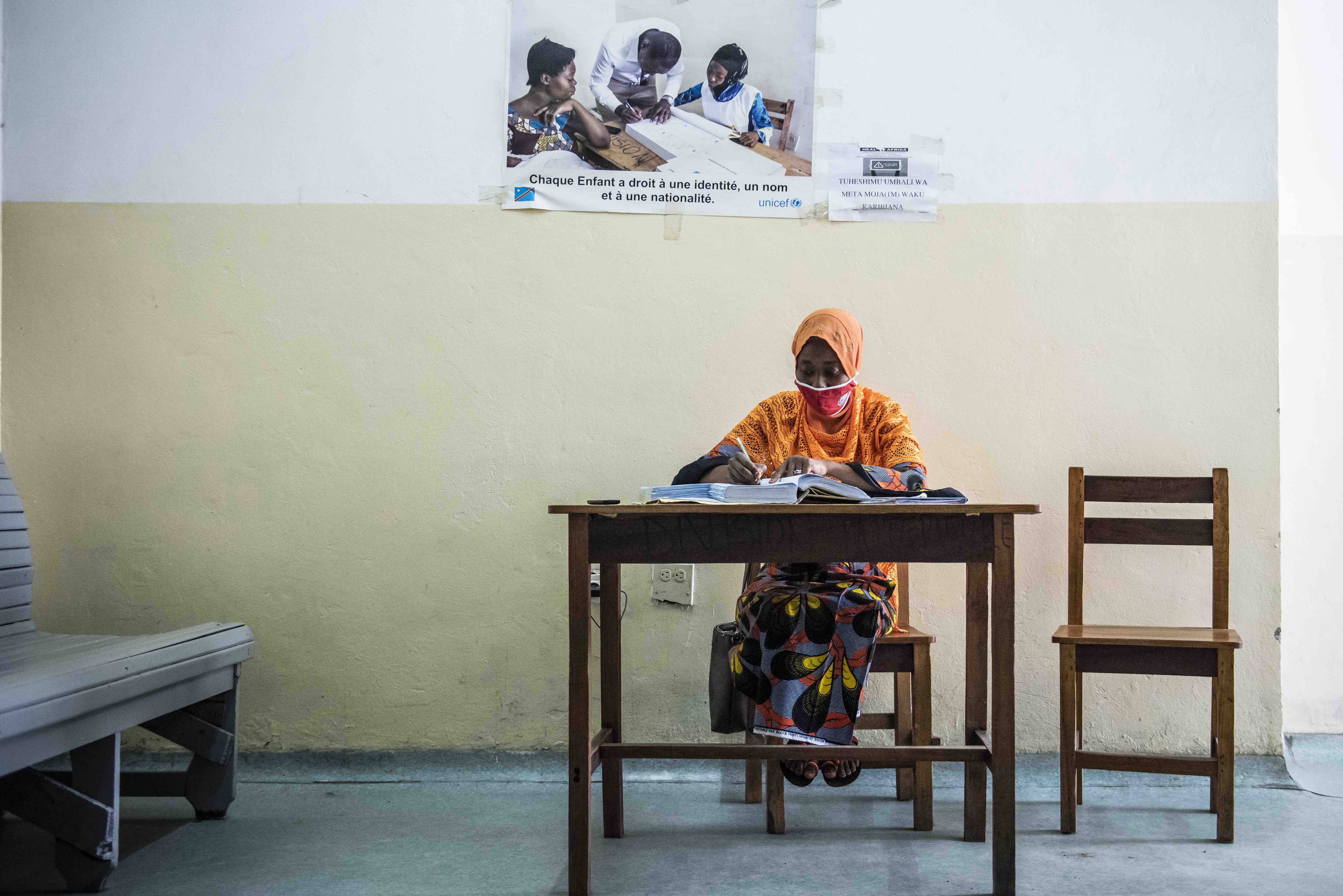In Burkina Faso, universal access to rights, especially those pertaining to the registration of births continues to remain problematic. A study undertaken by the World Bank found that over 6 million people in Burkina Faso have no birth certificate. In 2017, only 49.4% of births were registered within the legal period of two months. This low rate of registration can be explained by geographic, economic, cultural, political, legislative, and administrative barriers.
In addition, the security crisis that the country has faced since 2015 further complicates the registration of children’s births. This crisis has led to massive forced displacements of populations towards safe zones, thus aggravating the difficulties and barriers to birth registration.
In the absence of a birth certificate, children face many risks such as statelessness, a lack of access to school, health services, and social security. Without this precious document, these children cannot be legally protected in the face of human slavery, child labour, forced marriages, sexual exploitation, forced disappearances, or recruitment by armed groups.
In 2019, the Directorate-General of Civil Registration Modernization (DGMEC) launched a vast programme of modernisation of civil status, notably through the digitisation of birth certificates.
In this urgent context, this project accompanies an initial pilot area in the reinforcement of operational capacities for the coordination of digitisation of civil status using the ICivil solution. Through this project, the children – and particularly internally displaced children – can gain access to basic social services (education, health, protection, etc.) through the delivery of their birth certificate.
Identification and retroactive registration of 10 000 children aged under 15 without a birth certificate in the pilot area:
The Civil Status Bureau of the area is equipped with the “ICivil” material and equipment necessary for the regularisation of births. Ten civil-status agents are trained in the use of this new technology.
Through home visits within the villages of the area, 40 pairs of educators contribute to raising community awareness as to the need to declare births, as well as the identification of uneducated children with no birth certificate. Alongside their actions in communities, 40 teachers undertake the referencing of students who do not have civil-status deeds, in the schools of the area, and particularly 10-year-olds and internally displaced children. The goal is to attain the whole community, in order to identify 10 000 “ghost children”[1] under 15, via the school system and home visits.
Thanks to these identificatory and census actions, 200 public hearings are organised in the area to register these 10 000 children, with priority given to 10-year-olds, who have an urgent need for civil status in order to complete their examination files. Every child is thus registered in the civil-status management software and receives their birth certificate.
Establishment of advocacy actions to assist with the evolution of birth registration conditions:
In Burkina Faso, the establishment of civil-status deeds takes into account the person’s place of birth. Therefore, internally displaced persons and notably children born in a different region or department are unable to have their situation regularised and obtain their birth certificates. A national workshop bringing together the target area’s authorities will aim to convince these key stakeholders of the need to take the IDP into account at public hearings, the only channel enabling them to access civil-status documents.
Work must be undertaken on the economic model of the pilot project to durably establish the ICivil solution in other areas (estimation of costs for the city councils, local stakeholders, families, etc.), thereby raising awareness of the importance of investing in this solution.
Moreover, a compendium of data is made, with a view to determining the budget required for civil-status registration among city councils and other local stakeholders, the costs borne by the families during regularisation sessions, and the requisite budget to be put in place for the ICivil solution over the long term. This activity is implemented for advocacy purposes, to mobilise more significant budgetary lines towards civil status and to render the ICivil technology durable in the country’s system of registration of civil-status data.
A pilot area is supplied with the functional ICivil solution and qualified human resources for the regularisation of births.
The communities within the area are informed of the stakes and motivated to participate in the identification of children under 15 without civil status.
10 000 children are retroactively registered with civil status and issued a birth certificate.
Expected Impacts:
The 10 000 children regularised are finally recognised legally and administratively in their country and have access to education (follow the school system), to healthcare, and legal protection.
The pilot area adopts the ICivil tool and continues the actions of regularisation of civil-status deeds in its budget beyond the initial 10 000 registered children.
The project spreads to other areas, to regularise more ghost children.
Regularisation of “Ghost Children” in Burkina Faso
Make a donation-
Burkina Faso
-
Project status
In progress
-
Duration
13 mois
-
Funding
80 000 €
-
Beneficiaries
10 000 children aged under 15 years old without birth certificates
5 000 parents within the pilot community
10 civil status agents among the civil servants of the target town
-
Partners
Tintua
ICivil Africa S.A
Directorate-General of Civil Registration Modernization (DGMEC)
-
Objectives
To regularise the civil status of 10 000 ghost children under 15 years old within the national digital register of Burkina Faso to give them access to their rights, particularly that of education;
To accompany the deployment of the ICivil solution within a target area in Burkina Faso, for the registration of civil-status deeds for children under 15;
To reinforce the community awareness and mobilisation for the identification of children under 15 without civil status.
 L'Amade
L'Amade